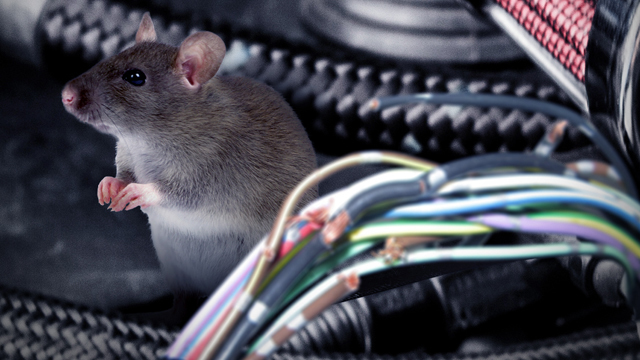New Soy-Based Wiring Attracting Rats
Megan Pinneo
Rat caught in the act of chewing through wires in an engine compartment. (AP Photo: WFTV.com)
Early February, Forbes Magazine published an article stating that several car companies are experiencing problems with using soy-based wiring in newer cars. This has effected automobile brands such as Honda, Volvo, Mazda and Toyota.
While older cars are often swapped out for newer vehicles that offer better fuel efficiency and meet the emission standards required by state, many are realizing that older cars are not being effected by the rats.
"Some newer model cars use materials like soy that are more biodegradable than plastics. It’s all part of an effort to make car parts more environmentally-friendly" (Dunne, 2017). While intentions are good, dealerships are finding that the environmentally friendly wiring is attracting rodents in both rural and suburban communities, causing more harm than good.
Have you purchased a new car recently? It wouldn't hurt to take it into the nearest dealership and inquire if the new soy-based wires are covered by the warranty. You will thank us later!
References
Dunne, M.J. (2017, February 19). Rats! New Cars' Soy-Coated Wires Give Rodents Plenty to Chew On. Forbes Magazine. Retrieved from http://www.msn.com/en-us/autos/news/rats-new-cars-soy-coated-wires-give-rodents-plenty-to-chew-on/ar-AAn7aey?li=BBmkt5R&ocid=spartanntp
WFTV.Com. (2016, December 20). Florida woman sues Toyota for rodent chewed wires. Fox25 WFXT. Retrieved from http://www.fox25boston.com/news/florida-woman-sues-toyota-for-rodentchewed-wires/477497824
